Introduction
How To Bond Guinea Pigs: Guinea pigs, those endearing and sociable little rodents, have captured the hearts of pet enthusiasts around the world. Their charming personalities, distinctive vocalizations, and adorable appearances make them popular to households everywhere. However, like any other social creatures, guinea pigs thrive when they have companionship. To ensure their happiness and well-being, it is essential to understand how to bond guinea pigs effectively. The notion of bonding guinea pigs transcends mere cohabitation it encompasses fostering emotional connections and harmonious relationships among these furry companions. Whether you’re a seasoned guinea pig owner or a newcomer to the world of cavy care, mastering the art of bonding is essential for their overall welfare.
This is the intricacies of guinea pigs squeal bonding, offering invaluable insights, tips, and techniques to help you create strong and lasting connections between your furry friends. From understanding their social nature to the step-by-step process of introducing guinea pigs to one another, we will explore the various facets of this fascinating journey. In the wild, guinea pigs are known to live in close-knit groups, which them with safety, companionship, and a sense of belonging. Captive guinea pigs thrive when their social needs are met similarly. By learning how to bond guinea pigs properly, you can mimic these natural bonds, creating a happy and harmonious environment for your pets.
Whether you’re looking for a new guinea pig to an existing group or seeking companionship for a lone cavy, this will equip you with strategies to navigate the bonding process successfully. We will address common challenges, dispel myths, and practical advice to ensure that your guinea pigs not only coexist but also form deep and meaningful connections that enhance their quality of life. So, of understanding and mastering the art of bonding guinea pigs, ensuring that your furry companions lead fulfilling and joyful lives together.
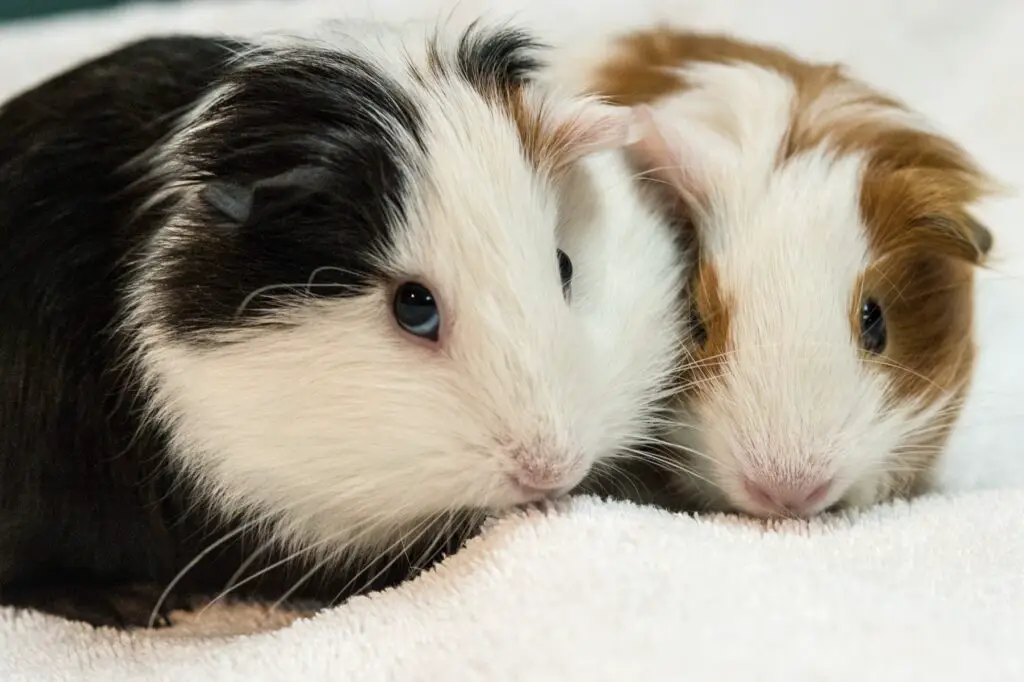
How long does it take for guinea pigs to bond?
You’ve honored the quarantine period, your new pig is healthy and you are ready to introduce him or her to your other guinea pig. Have patience, take your time, always do this on neutral territory, and don’t give up too soon. Bonding may happen in one afternoon or it may take months.
Individual Personalities: Guinea pigs, like humans, have unique personalities. Some guinea pigs are naturally more sociable and adaptable, making the bonding process quicker, while others may be more reserved and take longer to warm up to their cavy companions. It’s essential to recognize and respect these individual differences.
Age and Experience: Young guinea pigs, known as “pups,” tend to bond more easily than older, more established ones. Pups are generally more open to forming new social connections. Older guinea pigs may be set in their ways and require more time to adjust to new companions.
Gender: The gender of your guinea pigs can influence the bonding process. Bonding two females, known as “sows,” or a neutered male and female is often easier than bonding two unneutered males, known as “boars.” Male guinea pigs can be territorial and prone to conflicts, which may extend the bonding period.
Are guinea pigs easy to bond?
Guinea pigs are prey animals, so they are naturally skittish. However, with patience and gentle handling, they can become quite tame. They will also bond with their owners, even without treats.
Age: Generally, younger guinea pigs, often referred to as “pups,” tend to be more adaptable and open to forming new bonds. Older guinea pigs may be more set in their ways and could take longer to adjust to new companions.
Gender: The ease of bonding can be influenced by the genders of the guinea pigs involved. Bonding two females, known as “sows,” or a neutered male and female is often smoother than bonding two unneutered males, known as “boars.” Unneutered males can sometimes display territorial or aggressive behavior, which may complicate the bonding process.
Personality: Just like humans, guinea pigs have individual personalities. Some are naturally more outgoing and sociable, while others may be more reserved or shy. Bonding can be easier when the personalities of the guinea pigs align.
Experience: If guinea pigs have had positive social experiences with other cavies in the past, they may be more receptive to bonding. Conversely, if they’ve had negative interactions or isolation, it might take more time and patience to build trust.
Can I put 2 male guinea pigs together?
Once they have established dominance, it’s possible for two males to live together quite happily. The secret to successful male bonding is: SPACE! You’ll need plenty of it. Male guinea pigs need at least 2.25sqm of cage space in order to be able to establish dominance and retreat when they need some time out.
Territorial Behavior: Male guinea pigs, also known as “boars,” have a reputation for being more territorial than their female counterparts. In the wild, boars establish territories and may engage in aggressive behavior to protect them. When housed together, this territorial instinct can sometimes lead to conflicts.
Hormonal Changes: Boars can experience hormonal fluctuations, especially during adolescence. This can make them more prone to displaying aggressive or dominant behavior, potentially leading to clashes with other males.
Individual Personalities: Just like people, guinea pigs have unique personalities. Some males may be more dominant or assertive, while others are more passive. Compatibility largely depends on the personalities of the individual guinea pigs involved.
Socialization History: The socialization experiences of the guinea pigs can influence their ability to live harmoniously together. Guinea pigs that have had positive social interactions with other males in the past may be more adaptable to cohabitation.
Can 2 female and 1 male guinea pigs live together?
Successful pairings or groups
The most suitable pairings are two females or a neutered male and a female. If you would like to keep a group of three or more guinea pigs it’s not advisable to have more than one male as any more can cause a conflict over resources.
Reproduction: The most significant concern when housing a male with females is the potential for breeding. If the male and females are not neutered or separated, they will likely reproduce, leading to a rapidly growing population of guinea pigs.
Stress and Competition: Even though females tend to be less aggressive, there can still be competition for attention, resources (like food and hiding spots), and the male’s affections, potentially causing stress and tension within the group.
Space and Resources: Ensure that the enclosure is spacious enough to accommodate all three guinea pigs comfortably. Multiple hiding spots, food dishes, and water sources to reduce competition.
Compatibility: Not all guinea pigs will get along, regardless of their gender. Be prepared for the possibility that the group may not harmonize, and you may need to consider alternative housing arrangements.
What to do if guinea pigs hate each other?
You can prevent your guinea pigs from fighting by making sure their cage is big enough, and they have lots of things to keep them busy. Also, make sure there are plenty of tunnels and hides in the hutch, and that each guinea pig as their own toy.
If you observe signs of aggression or extreme hostility between your guinea pigs, the first and most crucial step is to separate them immediately. Place each guinea pig in a separate enclosure to prevent physical harm and reduce stress. Do not attempt to keep them together if they are fighting or displaying aggressive behavior.
If your guinea pigs’ aggression seems sudden or unusual, it’s a good idea to consult a veterinarian. Medical issues, such as dental problems or infections, can cause pain and behavioral changes that may lead to aggression. Addressing any underlying health concerns is crucial for resolving aggression.
Despite your best efforts, it’s possible that some guinea pigs may never get along. If their aggression persists or escalates, it may be in their best interest to live separately. Guinea pigs can be perfectly happy and content as solitary pets if they receive plenty of love, attention, and mental stimulation from their human caregivers.
Is it OK to have 2 guinea pigs?
We recommend always having two or more guinea pigs together, with safe introductions to keep them happy. Our guinea pigs need other guinea pigs. They love nothing more than the company of their own kind; this allows them to express their natural behaviours and meets their social needs.
Guinea pigs are herd animals by nature, and in the wild, they live in groups. In captivity, they retain this social instinct, and loneliness can lead to stress, depression, and health issues. Having a companion guinea pig them with the social interaction they crave, reducing the risk of loneliness and boredom.
Guinea pigs form deep emotional bonds with their cage mates. They groom each other, cuddle, and communicate through various vocalizations. These bonds emotional support and comfort, helping guinea pigs feel safe and secure.
Social interaction is essential for a guinea pig’s physical health. They engage in play, exercise, and exploration together, which helps maintain a healthy weight and prevents obesity. Having a companion also reduces the risk of behavioral problems, like over-grooming or excessive chewing, that can result from loneliness.
Why are my guinea pigs biting each other?
It’s not uncommon for two male guinea pigs to bite at one another to show dominance over shared space. For this reason, house two male pets separately and carefully monitor them during playtime. If you have more than one piggie living in a habitat, be sure they each have their own spaces within the cage.
Guinea pigs often engage in mild nipping or nuzzling as a way to establish their social hierarchy within a group. In a group of guinea pigs, there is typically a dominant pig and subordinate pigs. Nipping is a way for them to communicate their status and maintain order within the group.
Sometimes, what appears to be biting is actually playful behavior. Guinea pigs may nibble on each other gently during playtime. This behavior is usually harmless and is a way for them to interact and bond with one another.
Guinea pigs explore their environment and each other with their mouths, which can occasionally result in nips. They may nibble to investigate a new scent, texture, or object, including their cage mate.
Guinea pigs can become territorial over their living space, especially if they feel there is competition for resources or hiding spots. In such cases, they may nip at each other to establish boundaries or assert dominance over certain areas.
Are guinea pigs scared a lot?
As piggy parents, you probably know that guinea pigs are quite skittish, and it comes from the fact that they’re naturally prey animals! Even if they are living in our homes with us, they can still be frightened by certain things, whether it’s loud noises, or certain behaviors that we display as humans.
Guinea pigs have sensitive hearing, and loud or sudden noises, such as thunderstorms, vacuum cleaners, or loud music, can startle and frighten them. Being prey animals, guinea pigs are naturally cautious and may become scared in the presence of potential predators, such as dogs or cats. Even sudden movements by humans can be perceived as threatening.
Some guinea pigs may become fearful when they are picked up or handled if they are not accustomed to human contact or if the handling is rough or uncomfortable for them. Guinea pigs can feel apprehensive in unfamiliar surroundings, especially if they are placed in a new cage or play area without proper acclimatization.
Social interactions within a group of guinea pigs can sometimes lead to fear, especially if there are dominance disputes or aggressive behaviors among cage mates. Guinea pigs may become fearful if they are experiencing illness or pain. Discomfort can make them more skittish and anxious.
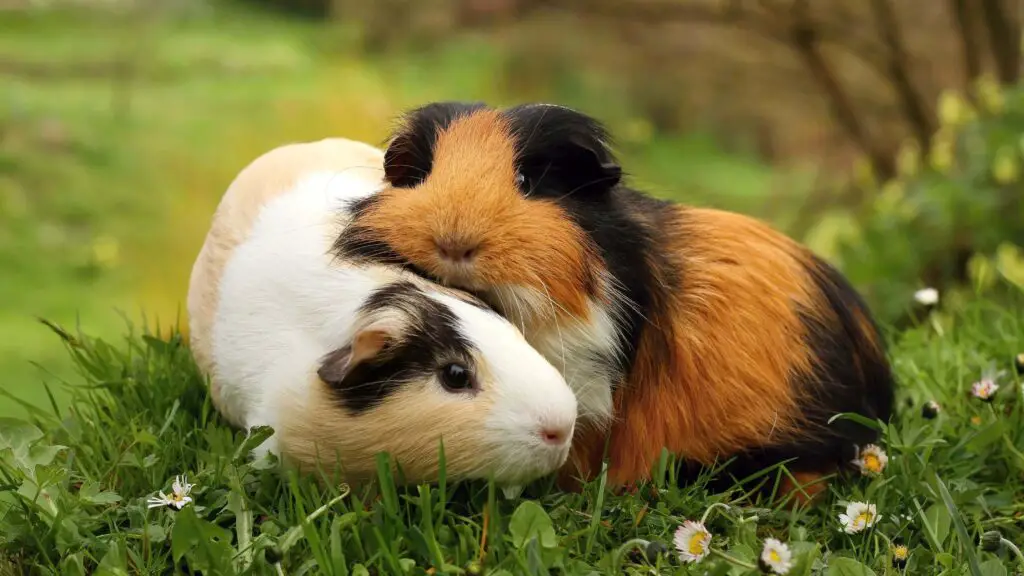
Conclusion
In the realm of pet ownership, where the love and care of our animal companions take center stage, understanding how to bond guinea pigs is a vital skill. Guinea pigs, with their endearing pigs nature and penchant for social interaction, offer us a unique opportunity to witness the magic of companionship in the animal kingdom. As we explore the art of bonding with these charming rodents, it becomes evident that the benefits extend far beyond the well-being of our furry friends; they touch our hearts and enrich our lives. Through unveiled the intricacies of guinea pig bonding, shedding light on their social needs and the techniques to meet them. We’ve emphasized the importance of patience, observation, and empathy in fostering relationships among these small, sociable creatures.
By following the steps outlined, you can your guinea pigs with the companionship they crave, ensuring a happier, more fulfilled existence for them. One of the key takeaways from our journey into guinea pig bonding is the profound impact it can have on the animals’ physical and emotional health. When guinea pigs bond successfully, they are less prone to stress and loneliness, resulting in a decreased risk of illness and a longer lifespan. Witnessing their playful interactions and vocal exchanges can be a source of endless joy for the human caretaker, strengthening the human-animal bond.
But guinea pig bonding goes beyond the practical benefits. It is a testament to our commitment as pet owners, highlighting our responsibility to a nurturing and stimulating environment for these gentle creatures. It teaches us valuable life lessons about patience, empathy, and the rewards of investing time and effort into building meaningful relationships. As bond guinea pigs or nurture existing connections among your cavies, that each pairing is unique. Guinea pigs, like humans, have distinct personalities and preferences, so flexibility and adaptability are essential. Through gentle guidance, positive reinforcement, and a commitment to their happiness, you can witness the magic of guinea pig companionship flourish before your eyes.

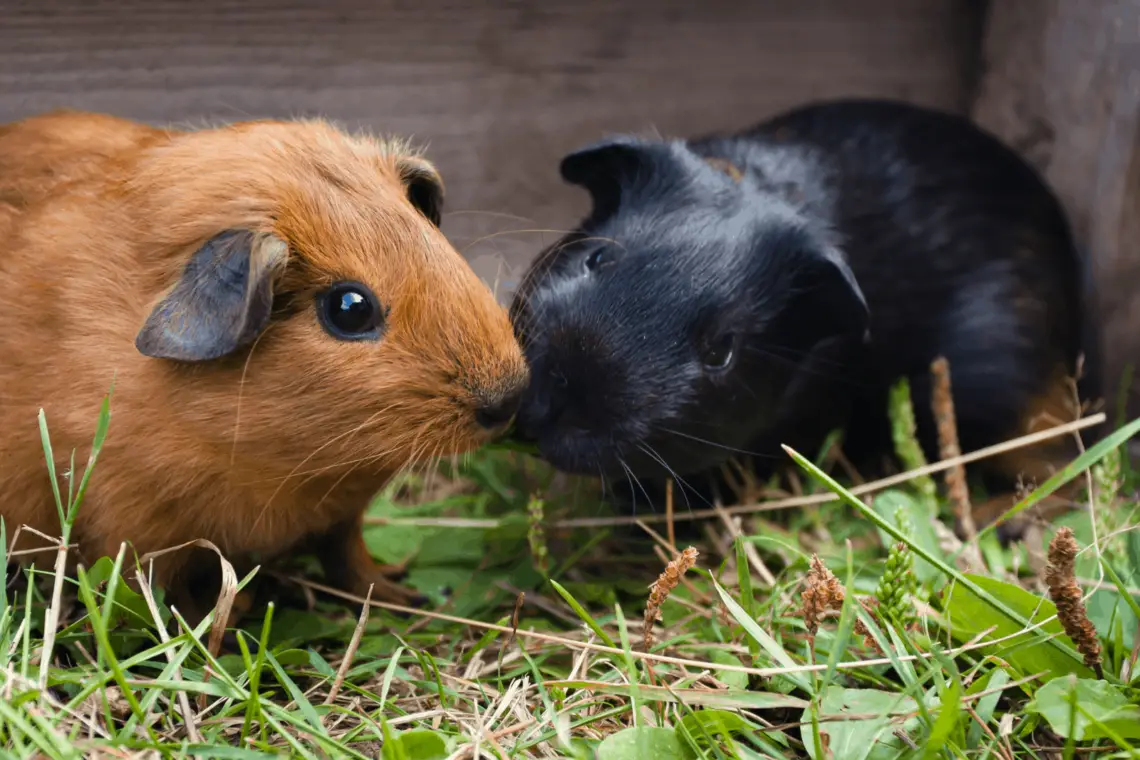
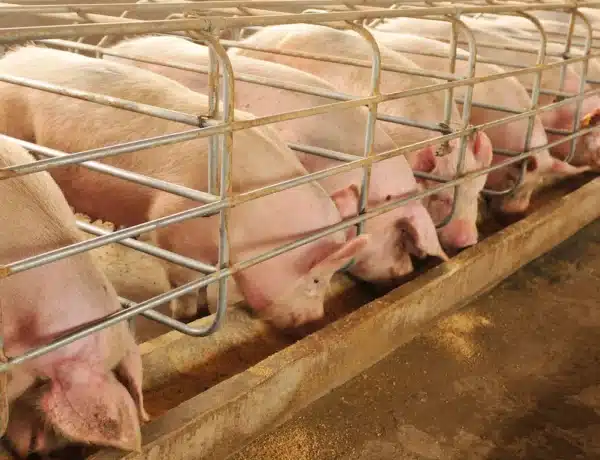

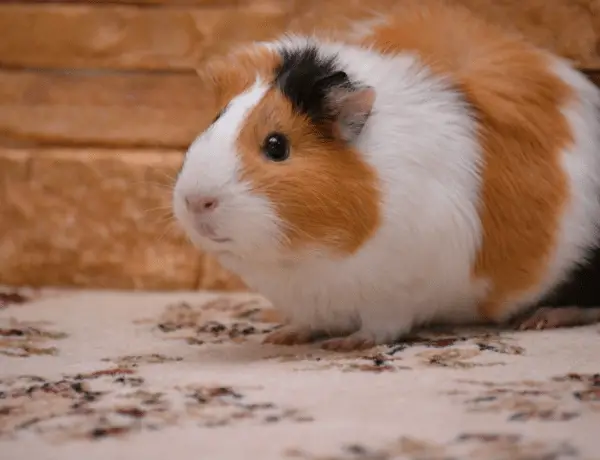
No Comments